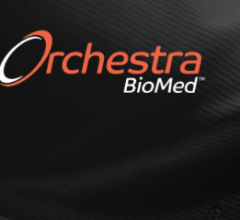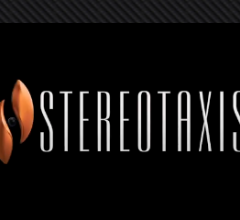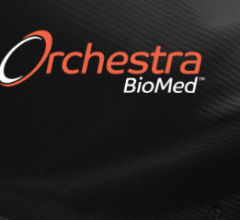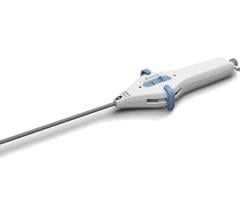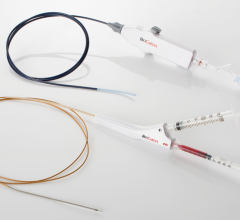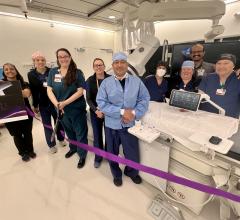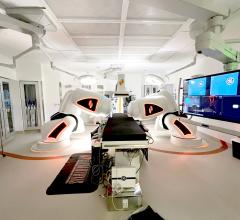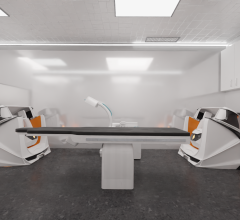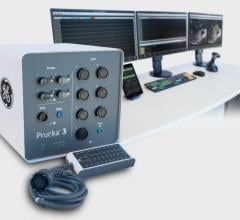
May 13, 2020 — The patient-administered nasal spray drug etripamil did not meet its primary endpoint in treating patients with paroxysmal supraventricular tachycardia (PSVT), according to th results of the NODE-301 Trial presented as a late-breaking study at the Heart Rhythm Society (HRS) 2020 virtual meeting.
The drug from Milestone Pharmaceuticals Inc. is a novel short-acting calcium channel blocker. The trial enrolled a total of 431 patients across 65 sites in the U.S. and Canada, is an event-driven Phase 3 efficacy trial of etripamil for terminating supraventricular tachycardia (SVT) episodes in the at-home setting.
However, etripamil (70 mg) did not achieve its primary endpoint of time to conversion of SVT to sinus rhythm (SR) compared to placebo over the five hour period following study drug administration (median time to conversion of 25 minutes [95% CI: 16, 43] for etripamil vs. 50 minutes [95% CI: 31,101] for placebo, p=0.12). Despite early activity, including the conversion of 61% of etripamil patients vs. 45% of placebo patients by 45 minutes (p=0.02), a time period consistent with etripamil's known pharmacological activity, results from the latter part of the analysis confounded the statistical analysis of the primary endpoint.
The study did demonstrate statistically significant improvements in favor of etripamil over placebo in the important secondary endpoint of patient reported treatment satisfaction, as measured by a treatment satisfaction questionnaire for medication (TSQM-9), including global satisfaction (p=0.0069) and effectiveness scores (p=0.0015), with questions addressing the relief of symptoms commonly associated with an episode of SVT, such as rapid pulse, heart palpitations, anxiety, shortness of breath and dizziness. Additionally, there was a trend in improvement in the percentage of patients seeking rescue medical intervention, including in the emergency department, with etripamil and placebo patients reporting 15% and 27%, respectively (p=0.12).
"PSVT places a significant burden on patients and the healthcare system, and a fast-acting therapy to resolve its symptoms when and where episodes occur would have a material impact on both," said Bruce Stambler, M.D., FHRS, Piedmont Heart Institute, Atlanta, Ga. "NODE-301 is a first-of-its-kind study, and as such encountered a number of challenges relative to studying SVT episodes outside of a controlled electrophysiology laboratory environment. The safety results support at-home use and the multiple efficacy signals show us that, with a confirmatory study, etripamil could fulfill the promise of delivering a fast-acting, patient administered therapy for PSVT."
The safety and tolerability data from the NODE-301 study are supportive of at-home use of etripamil, with adverse events (AE) consistent with those observed in prior trials. The most common AEs observed in patients receiving etripamil were local to the nose, including nasal irritation and congestion, and these events were typically transient in nature and most commonly characterized by the patient as mild in severity. There were no significant differences in incidences of severe adverse events or adverse events of interest, such as atrioventricular nodal blocks or blood pressure-related symptoms, across the etripamil and placebo groups.
The NODE-301B study, which was designed to collect double-blind data from randomized patients who had not yet experienced an event after the NODE-301 trial reached its target number of adjudicated SVT events, continues. These data will be analyzed separately as a second data set. In addition, open-label safety studies of etripamil in subjects with PSVT, NODE-302 and NODE-303, are ongoing with active recruitment underway. The Company is actively monitoring the potential impact of the COVID-19 pandemic on its ongoing trials and will provide updates on any delayed timelines or cost impacts in the future. Milestone Pharmaceuticals expects to request a meeting with regulators to discuss the NODE-301 results and its ongoing studies.
The drug was first discussed in the HRS 2017 late-breaking sessions and the early results appeared very promising. Read more in the article First Nasal Spray Successfully Treats Supraventricular Tachycardia.
About the NODE-301 Clinical Trial
The NODE-301 trial is a Phase 3, multicenter, randomized, double-blind, placebo-controlled trial of etripamil, the Company's lead investigational product. Etripamil is a novel calcium channel blocker in the form of a nasal spray, intended for the acute treatment of PSVT and other episodic cardiovascular conditions wherever they occur. The study is designed for a population of those PSVT patients who historically experience 20 minutes or longer SVT episodes or episodes requiring termination in the emergency department. Following an in-office test dose of etripamil, 97.5% of patients were randomized (2:1) to receive either 70 mg of etripamil or placebo. Upon onset of PSVT symptoms, patients applied a wireless cardiac monitor to their chest to record heart rhythm, performed a vagal maneuver, and, if symptoms persisted, administered study drug. Of the 198 patient-reported events for which study drug was administered, a total of 156 were confirmed to be SVT events by a central independent adjudication committee and used to assess the study's efficacy endpoints.
The primary endpoint of the NODE-301 study is time to conversion of an SVT episode to sinus rhythm after the administration of study drug, as confirmed by a central independent adjudication committee. Secondary study endpoints include relief of symptoms commonly associated with an episode of SVT such as heart palpitations, chest pain, anxiety, shortness of breath, dizziness, or fainting, and rating of treatment satisfaction questionnaire for medication (TSQM).
What is Paroxysmal Supraventricular Tachycardia?
Paroxysmal supraventricular tachycardia (PSVT) is a rapid heart rate condition characterized by intermittent episodes of supraventricular tachycardia (SVT) that start and stop suddenly and without warning. Episodes of SVT are often associated with symptoms including palpitations, sweating, chest pressure or pain, shortness of breath, sudden onset of fatigue, lightheadedness or dizziness, fainting, and anxiety. Certain calcium channel blockers have long been approved for the treatment of PSVT as well as other cardiac conditions; however, when calcium channel blockers are used for the termination of SVT episodes, they must be administered intravenously under medical supervision, usually in an emergency department or other acute care setting.
Find links to all the Heart Rhythm Society 2020 Late-Breaking Clinical Trials in Electrophysiology

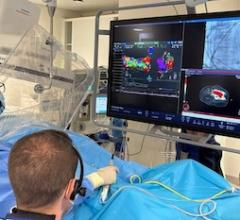
 January 29, 2026
January 29, 2026 
